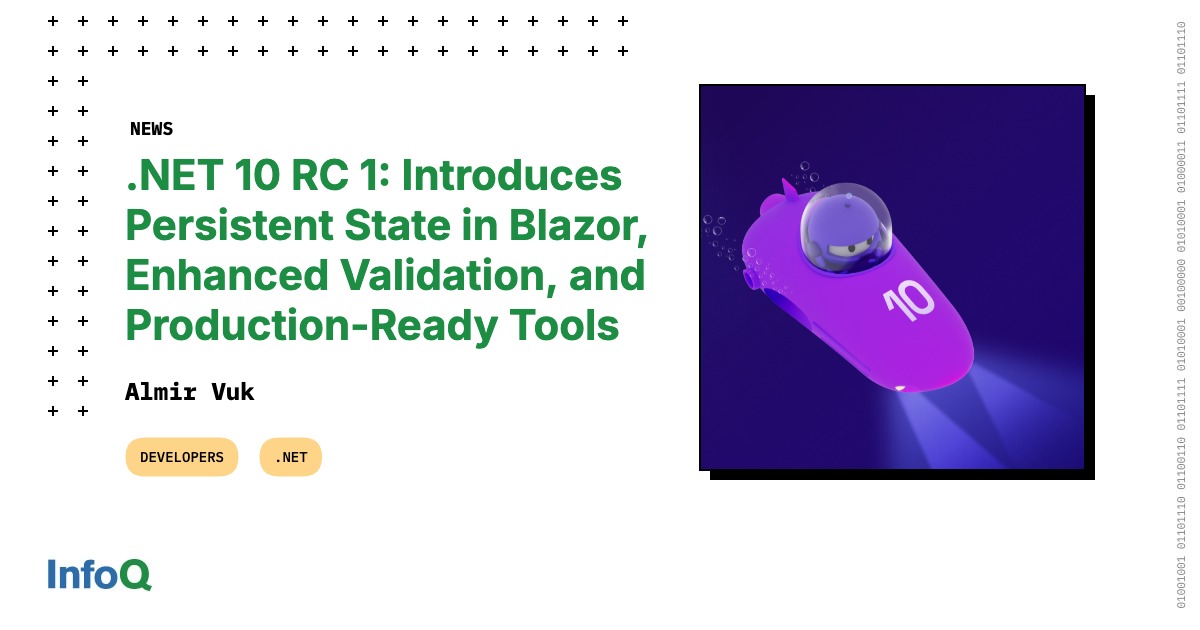
"Last week, Microsoft announced the release of .NET 10 Release Candidate 1, the first of two release candidates ahead of the final version. As stated by the .NET team, this build comes with a go-live license, allowing developers to use it in production environments with official support. It is available alongside Visual Studio 2026 Insiders and is supported in Visual Studio Code through the C# Dev Kit."
"Regarding the features, ASP.NET Core introduces support for persistent component state in Blazor during enhanced navigation. Components can now retain and retrieve previously stored state, improving application performance and maintaining user progress. Developers can configure the [PersistentState] attribute to control when and how state is restored, including options to skip restoration during prerendering or reconnection. Furthermore, ASP.NET Core Identity now emits a set of built-in metrics under the Microsoft.AspNetCore.Identity meter."
"Validation improvements span both Minimal APIs and Blazor. Type-level validation is now supported, allowing attributes to be applied to classes and records. The new [SkipValidation] attribute enables developers to opt out of validation for specific properties or entire types. Additionally, properties marked with [JsonIgnore] are excluded from validation, aligning behavior between model serialization and validation. OpenAPI schema generation has been refined in several areas."
.NET 10 Release Candidate 1 is available with a go-live license and support in Visual Studio 2026 Insiders and Visual Studio Code via the C# Dev Kit. ASP.NET Core adds persistent component state for Blazor to preserve and restore component state across enhanced navigation, configurable via the [PersistentState] attribute. ASP.NET Core Identity now emits built-in metrics under Microsoft.AspNetCore.Identity to track durations and counters for user operations and authentication events. Validation improvements include type-level validation, a [SkipValidation] attribute, and exclusion of [JsonIgnore] properties from validation. OpenAPI schema generation now models nullable complex types with oneOf and improves schema references and property descriptions.
Read at InfoQ
Unable to calculate read time
Collection
[
|
...
]